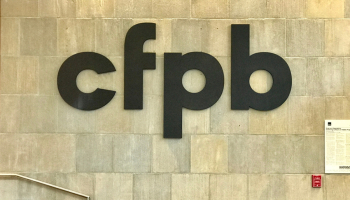ABA and CBA Express “Serious Concerns” Over Proposed CFPB Nonbank Regulations
The banking organizations wrote to the CFPB about the proposed redefinition of digital assets
- |
- Written by Banking Exchange staff

The American Bankers Association (ABA) and the Consumer Bankers Association (CBA) have “serious concerns” over proposed new rules for nonbank digital payment providers.
The Consumer Finance Protection Bureau (CFPB) proposed the new rules to supervise larger nonbank companies offering services such as digital wallets and payment apps in November.
Responding to the proposals, the ABA and CBA have expressed “serious concerns” over the expanded definitions of ‘funds’ in the proposed rules to include digital assets and virtual currencies such as Bitcoin.
The organizations said that this new definition would place Bitcoin transactions made for household purposes under the definition of ‘consumer payment transaction’ in the rules.
In a letter to CFPB director Rohit Chopra, the organizations described this as “a substantive action by the CFPB that is made with little underlying justification for the proposed change”.
The associations recommended that the redefinition be removed from the proposals and reconsidered in a separate rulemaking.
They stated: “The topic of digital asset supervision is larger than consumer protections for payments and should be subject to its own comprehensive public comment and debate process instead of being shoehorned into this rulemaking.”
However, the organizations broadly welcomed the tightening of supervision for nonbank financial service providers. They praised the test in the proposed rule that would identify covered nonbanks by the type of payment service provided and the annual transaction limit of $5 million per year, with the Small Business Administration (SBA) size standard exemption.
Tagged under Consumer Credit, Compliance, Retail Banking, Feature3, Feature, Customers, CFPB, Compliance Management, Compliance/Regulatory, Consumer Compliance, Community Banking,
Related items
- Inflation Continues to Grow Impacting All Parts of the Economy
- Banking Exchange Hosts Expert on Lending Regulatory Compliance
- Merger & Acquisition Round Up: MidFirst Bank, Provident
- FinCEN Underestimates Time Required to File Suspicious Activity Report
- Retirement Planning Creates Discord Among Couples